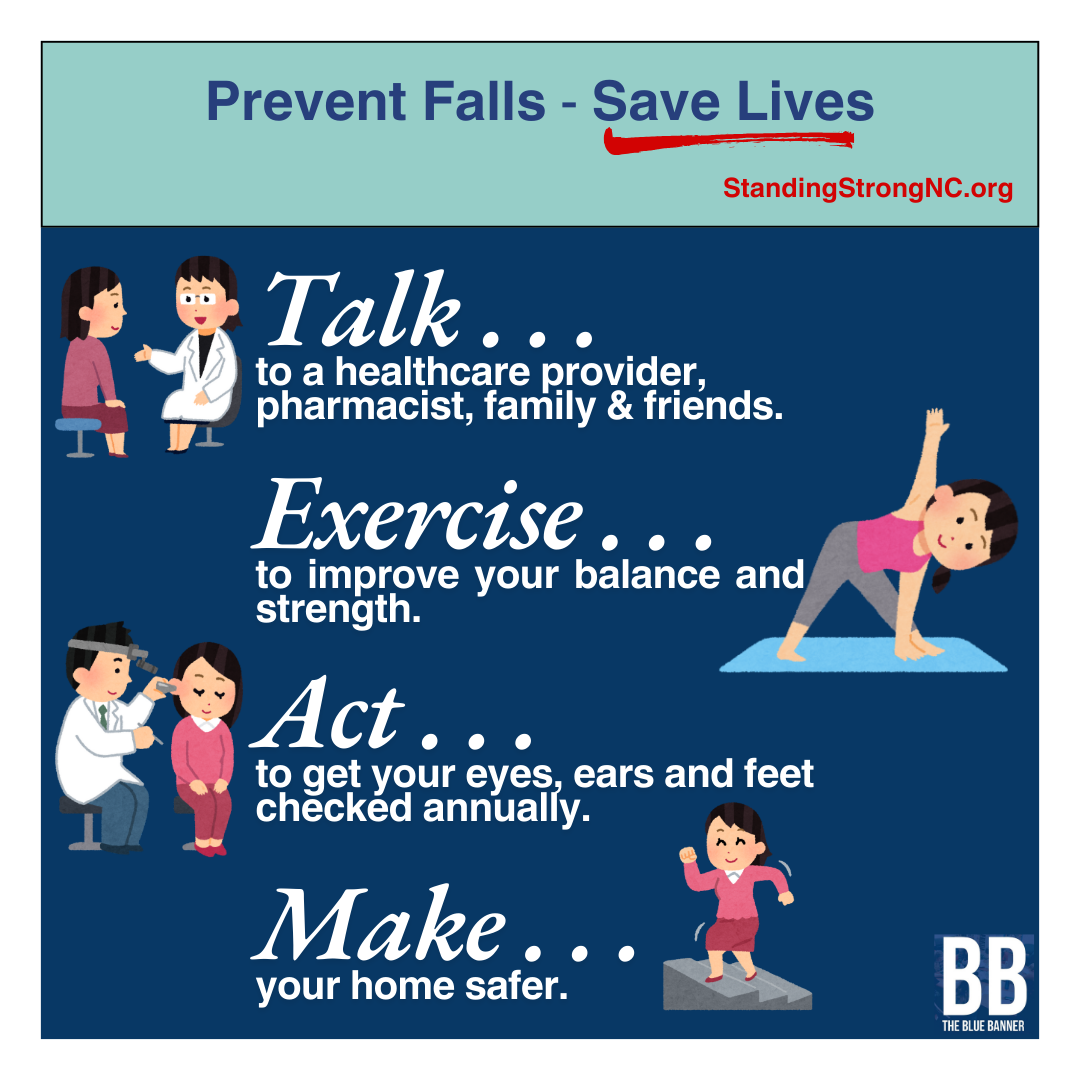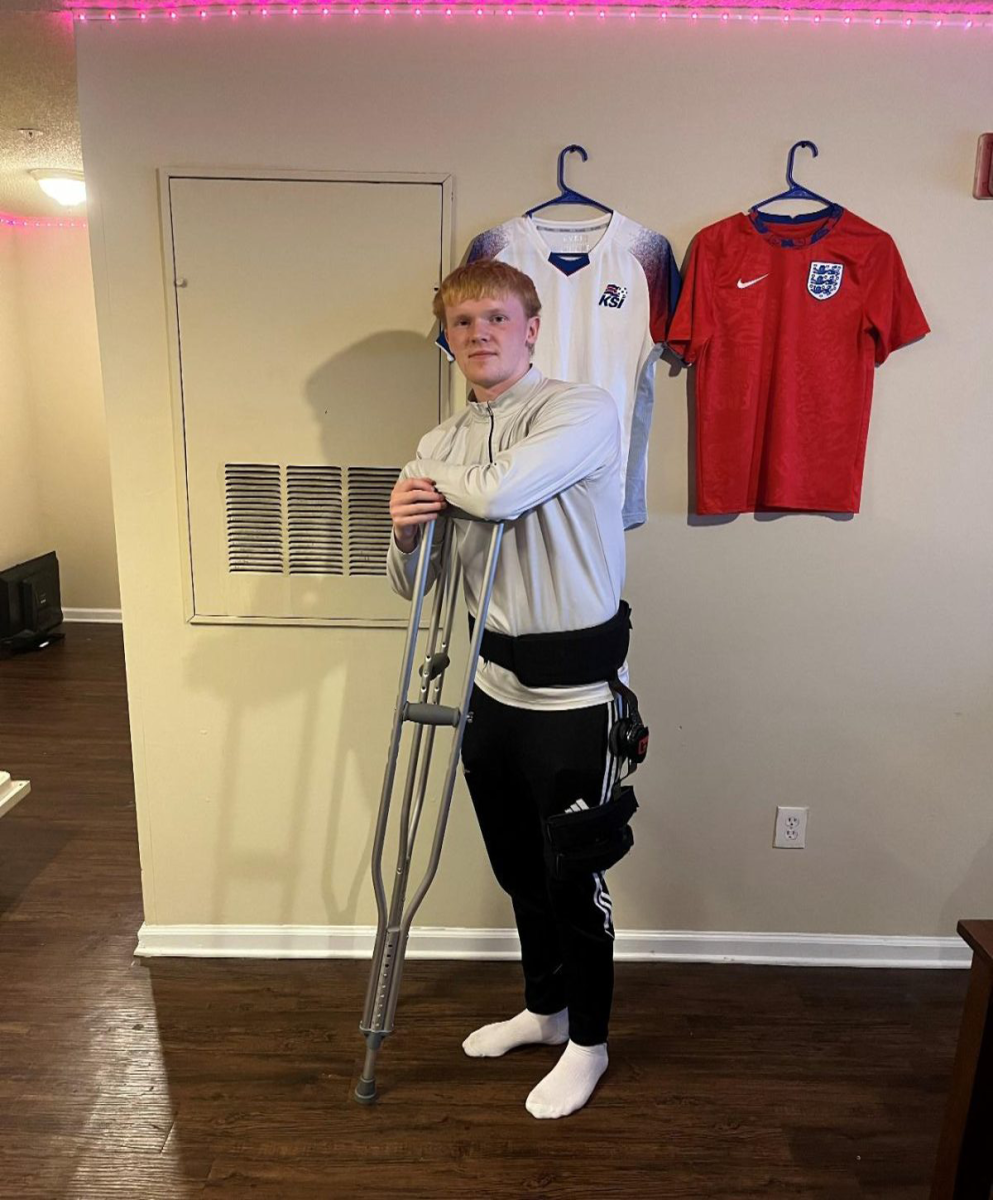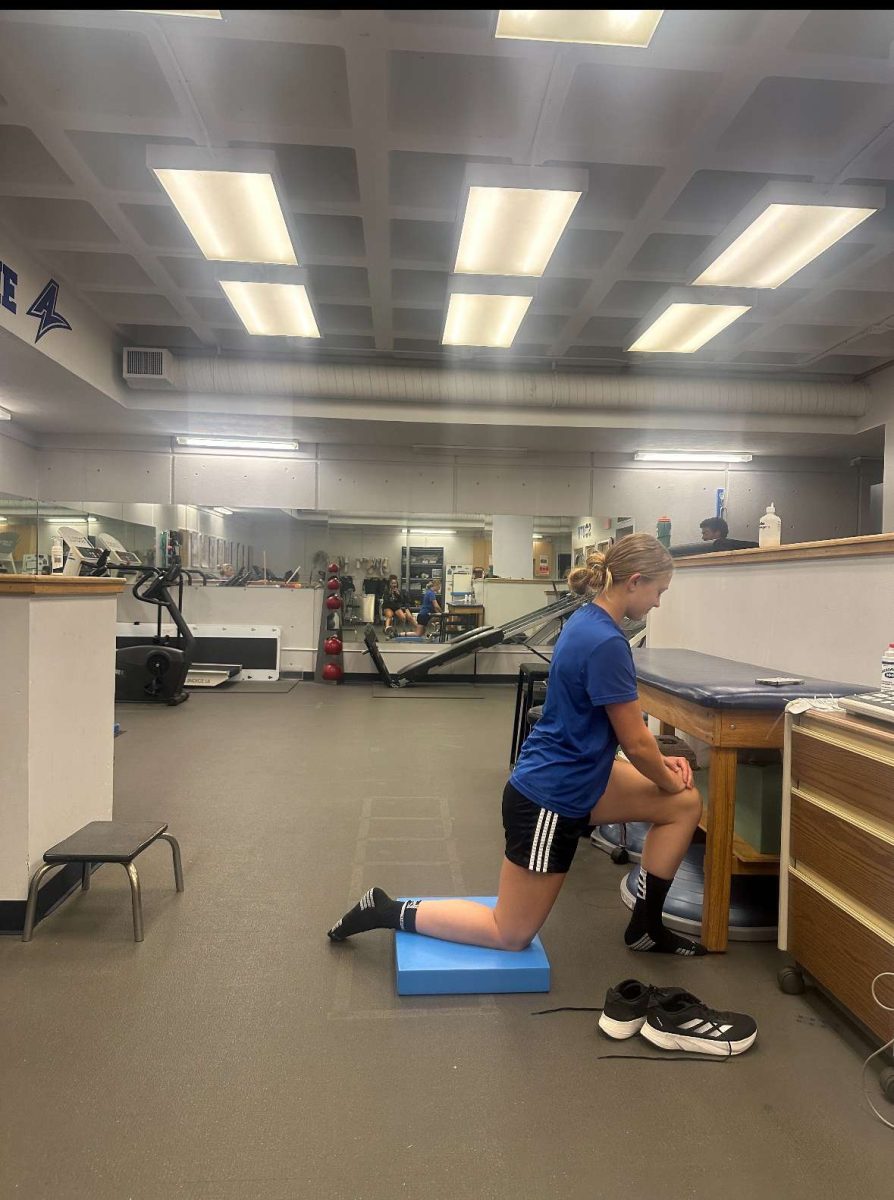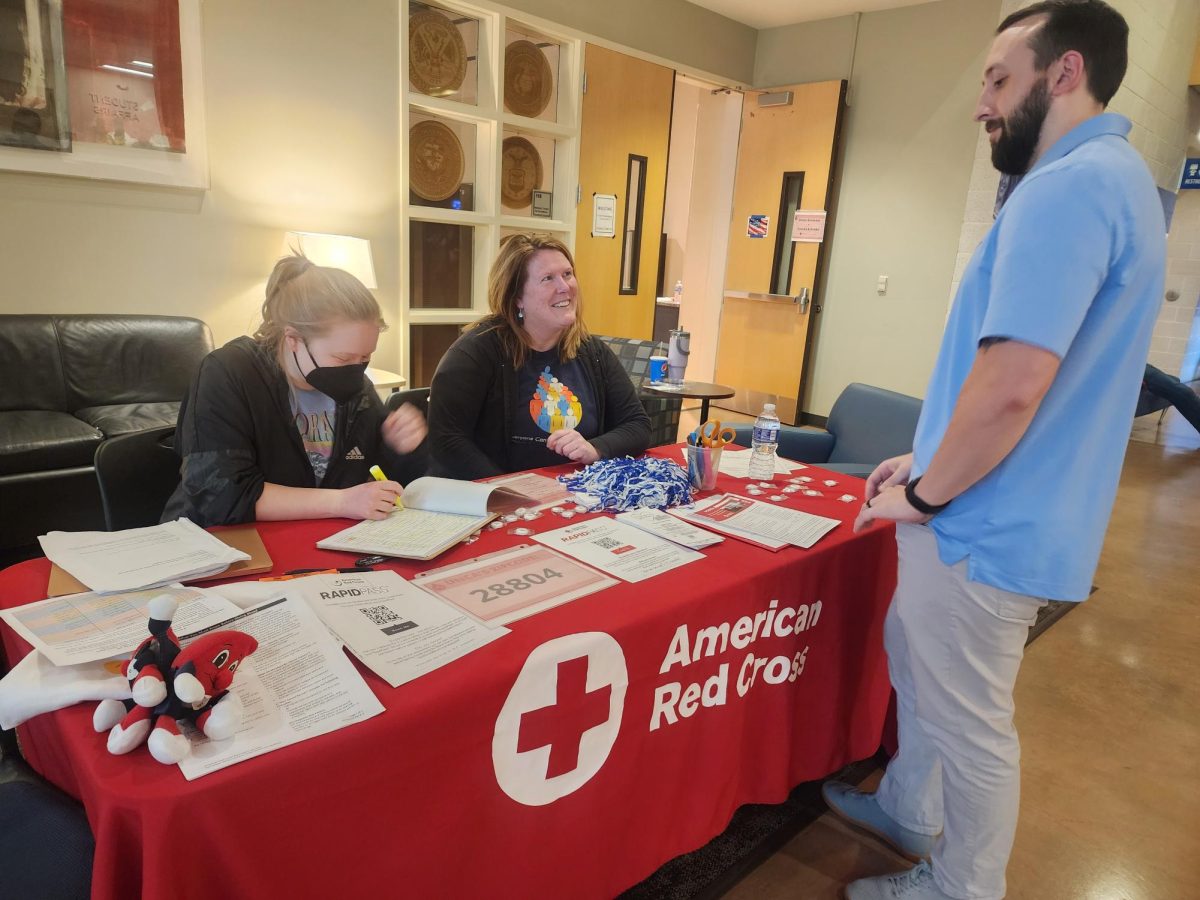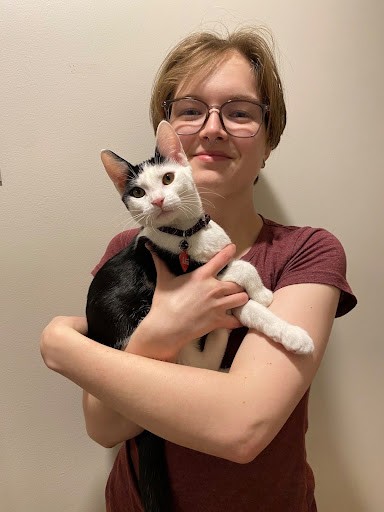
Diego Garcia
Photographer
As the country continues to battle the COVID-19 pandemic, health professionals on campus adapt to accommodate young adults.
“I believe the pandemic has added a different layer of support that students need and this is such a unique time and I think we all had different reactions to it, so I do believe that students have needed assistance to get through the pandemic. It’s also affected our lives for almost a year now,” said Jay Cutspec, the director at the Health and Counseling center at UNC Asheville.
A unique aspect about UNCA’s campus is an integrated system that includes all of the health services along with counseling services all in one location, according to Cutspec.
With the rise of mental health issues and aspects that surround the pandemic affecting young adults, exercise and healthy eating habits ultimately become more difficult and thus affect one’s mood because the mind and body are connected, Cutspec said.
“I think the challenge is how do you deal with them because the things that have created stresses in our lives because of the pandemic haven’t gone away, so we don’t have a lot of control over it and that in itself makes it difficult in telling people how to cope with it,” Cutspec said.
Due to the restrictions of COVID-19, promoting health and wellness information around campus has been slightly altered. Although there is a group of students known as PEPAH, Peers Educating Peers and Advancing Health. Those are students that are also peer educators, and have been trained to provide support to other students by educating them, Cutspec said.
“In normal times we do a lot of outreach to students in several ways. We have a full time health educator that goes out onto campus, as I do, as well and we talk about depression, anxiety, we talk about procrastination and stress management,” Cutspec said.
A way to connect with the Health and Counseling Center is through the student health portal on the UNCA Health and Counseling website. Students can login and find a number of resources while being completely confidential. This allows students to connect with doctors, nurses and counselors.
“You’d be shocked by the number of students that also express concern for their friends. We also have a crisis and care team that consists of people from the health and counseling, housing, advising and disability services that meet every week and they talk and support students that may need extra support,” Cutspec said.
Maria Gelpí, a junior at UNCA, helps around campus as a student worker and health promotion assistant at the Health and Counseling Center.
“Although I try to stay off social media as much as I can, it is a useful mechanism that allows me to connect to my friends and family back in San Juan, Puerto Rico, even if it is just seeing their stories for five seconds or even a small reply to my own story is helpful to me. I’m also the type of person that FaceTimes their mom like 30 times a day. I try to stay in touch with my family members as much as I can,” Gelpí said.
Gelpí, also a yoga enthusiast, has been working on getting her certification to teach yoga and talked about how meditation practices have helped her cope with the struggles of being away from home.
“A lot of my friends have been asking me about yoga and meditation practices recently and I’ve been trying to get them to establish a daily practice by doing a sun salutation yoga practice for 15 minutes, and I’ve been
told it helps a lot. I also try to mediate in the morning like 10 minutes before going out to start my day or even 10 minutes at night before I start unwinding, and it really helps establish my mood throughout the day,” Gelpí said.
According to Gelpí, students can struggle to form good eating habits. For her, this struggle proved more difficult due to a pre-existing eating disorder.
“In my case it is a bit peculiar because my eating habits used to be unhealthy. Last semester I used to eat maybe two meals every two days, I really wasn’t eating great. I just want people to be aware of how important that is. I had to start working with a nutritionist this semester to get on track,” Gelpí said.
Gelpí emphasized the importance of listening to your body and paying attention to symptoms similar to the feelings of being dehydrated.
“Don’t just wait for later, seek what your body is asking for,” Gelpí said.
Due to the circumstances that have been presented by the pandemic, Gelpí said she feels the university has been trying hard to adapt in ways that benefit students. She also noticed how receptive the Health and Counseling Center has been to suggestions.
“I think we need to get students motivated to seek out those resources. Like last week we had our first session with therapy dogs and not even half the slots got full,” Gelpí said.
Gelpí explained that many of her close friends from back home haven’t been able to return to in-person classes at all since last March and the fact that UNCA remains open is a big deal.
“I think the UNCA student body is working really hard to improve support groups. For example, I’m a co-leader for PROSPANICA UNCA and we’re trying to engage with other minority groups who may be struggling to connect with people that they can identify with. And HOLA, which is a sister organization for Latinx students, we’re just trying to engage so much more because it’s what’s needed right now,” Gelpí said.
Martha McKay, a physician at the Health and Counseling Center, said they are here to support any student whether they are struggling or not.
“Mental health is an important aspect of health. It interweaves with a whole person and a way to look at this is to say ‘what affects health?’ Well, everything affects health,” McKay said.
According to McKay, emotional health overlaps with a person’s sleep schedule, their eating habits as well as their family life. Where you’ve grown up or even how much you like being inside versus being outside can play into your mental health. Even housing situations can affect one’s emotions.
“For example, people are doing good until their bike breaks or car breaks down and then they just can’t manage anything until that car gets fixed because that’s how they get around,” McKay said.
An interesting way to think about what affects a person are all the different situations and influences that come together when discussing mental and overall health, McKay said.
“We always look at that instead of looking at it as just one thing or let’s just fix that one thing,” McKay said.
There are support services in all different areas in order to help people figure out what suits their situation best. McKay described sustainable support as acting like a guide.
“Just like somebody that gets to a new building or a new park and they’re wondering where do all of these paths go, you might want to look at a map or somebody tells you or you might want to hear it, or you may want to draw your own map,” McKay said.
The university employs a more gentle approach when reaching out to those students because the services are all around, according to McKay.
“We respect your timing and when one’s ready to reach out we are there for you,” McKay said.


![Brooke Pedersen [second from the right] and Luis Reyes [right] hold banners during the Wrap The Woods event.](https://thebluebanner.net/wp-content/uploads/2025/09/ELIZABETH_PRITCHITT_IMG_3470-1200x804.jpg)

















